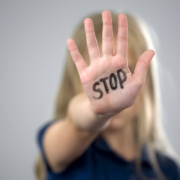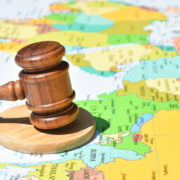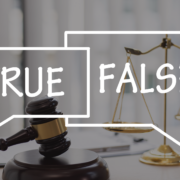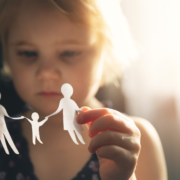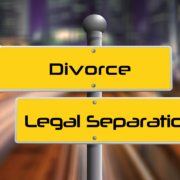Can I Protect my Kids From Emotional Abuse?
Emotional abuse, which is sometimes called psychological abuse, is a pattern of behavior that damages a child’s sense of self worth and negatively impacts their emotional development. Here’s what you can do if you suspect your child is suffering at the hands of a family member.
The holiday season is not the most wonderful time of the year for so many people and families. But for many around the world, it’s a challenging time where family law issues are temporarily swept under the carpet to be dealt with at a later date. Perhaps you have waited to file a divorce or find protective orders until the holidays are over? But when it comes to the wellbeing of your child, you need to take action now.
Here is everything you need to know about emotional child abuse and how you can take action to protect yourself and your children.
What is Emotional Abuse?
If you hear a story about abuse of children, specifically when it comes to physical or sexual abuse by parents, it seems inconcievable and anger is most likely your response. You could never imagine what parents could do this to their child, or that this would ever happen in your own home. However, not all signs of abuse are physical. What if parental abuse comes in a different less visible form? What if no one is physically hurt, but there is parental emotional abuse through words and actions?
The definition of emotional abuse, otherwise known as psychological abuse, is a pattern of behavior that damages a child’s sense of self worth and negatively impacts their emotional development.
Love and support is withheld, and oftentimes the person emotionally abusing the child also may reject, threaten, criticize, demean, and purposefully agitate the child. Abusers may also humiliate the child, participate in name-calling towards the child, and insult the child regularly. Although an emotionally abused child might not end up in the hospital with a broken bone or a concussion, the effects of emotional abuse can be damaging and long-lasting. In 2017, 2.3% of children in the United States experienced psychological or emotional maltreatment according to a report prepared by the Administration on Children, Youth, and Families. However, this estimate is likely low because emotional abuse can be harder to detect than other forms of child abuse and typically takes place in the confines of a child’s home.
Emotional abuse can be found in conjunction with physical or sexual abuse, and it is also one of the most difficult forms of abuse to recognize. Abuse in all forms is largely due to the need of power and control by the abuser, and emotional abuse is no different. In these abusive environments, the culprit manipulates and controls the child by using words and actions that are emotionally hurtful and damaging.
Identifying Emotional Abuse in Children
Emotional abuse experienced by a child may show certain behaviors that can be telling signs which you should watch out for. This would include:
- Anxiety
- Depression
- Low performance in school
- Loss of interest in social activities or other interests
- Avoiding activities involving family bonding
- Attempts to avoid certain situations (such as going to an activity or another person’s house)
- Stunted development of emotions
- Desire to self harm or inflict harm on others
- Desperately seeking affection and attention from other adults
- Regression of childhood development (a common example of this is bed wetting after previously mastering bladder and bowel control)
- Complaining of stomach aches or other bodily symptoms with no known cause
While this behavior does not directly equate to a child experiencing psychological abuse, one or several of these behavioral symptoms can be a sign that there is protection needed for your child. Any signs of this behavior in children could be grounds for requesting an Order of Protection due to harassment or willful deprivation.
Emotional Abuse Treatment
In the past, emotional and psychological abuse were not readily recognized in the eyes of the law. In today’s times, emotional abuse is often considered a major factor in family law cases and is reviewed closely in child abuse matters. In cases involving certain offenses, an individual should immediately seek out the assistance of an experienced family law attorney in your area, who can assist with reporting emotional abuse or protection for themselves or loved ones.
Priority number one is always to ensure the safety of the child, of course. If your child is being emotionally abused, there are several steps that can be taken to mitigate the risk of the situation at hand prior to legal help. The perpetrator of the abuse may need to go through treatment for their behavior, especially if the abuser is a parent of the child. Treatment can come in several different forms, which could include parenting classes, therapy individually or as a family, and even social services can be involved.
In addition to treatment for the abuser, the child experiencing the abuse will also most likely require medical attention. Those receiving the abuse and the repercussions may also benefit from therapy, either individually or with their family. Once they have the opportunity to process the emotional trauma, they are also aware of healthy coping mechanisms and how to resolve conflict in a healthier way.
If the abuse can’t be treated from these standpoints, and it needs to be escalated to legal assistance, Masters Law Group is here to help you with divorce consultation or an issuance of Order of Protection in the state of Illinois.
Emotional Abuse Protection
If you’re a parent and think your child is being emotionally abused by someone else—such as an ex, a teacher, a pastor, or coach—take steps to intervene.
Encourage the child in your life to contact the Child Helpline if they need some extra support to cope with what has been happening. They may find talking to somebody outside of the situation helpful. You could also try calling the National Parent Helpline in your state to discuss your concerns.
While all forms of abuse can feel like a never-ending hopeless situation, Masters Law Group is here to help you see a light at the end of the tunnel. We provide an array of family law services including Orders of Protection and divorce services for our clients. Our highly experienced family law attorneys offer skillful legal representation that will guide you through to safety for your children and yourself.
Get in touch with us here today to discuss and execute the best plan of action for you and your family.




